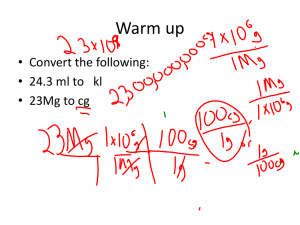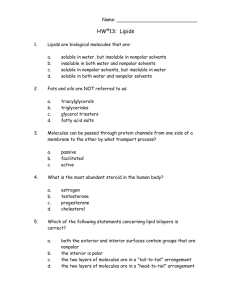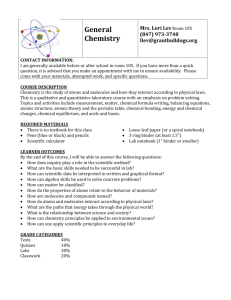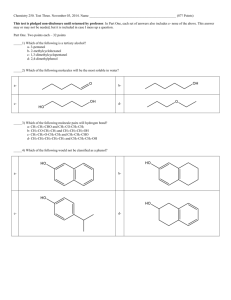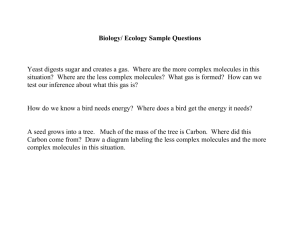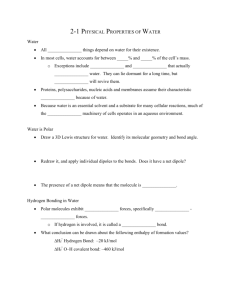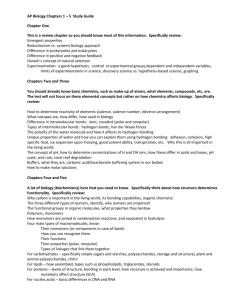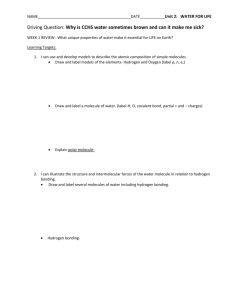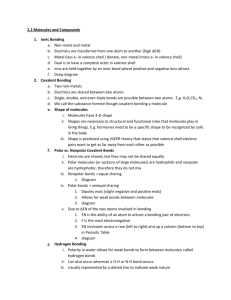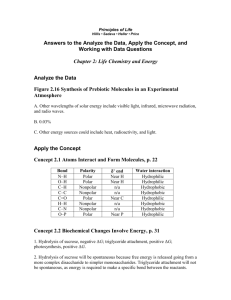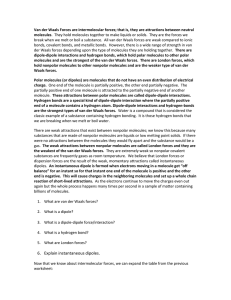Chapter 1: Intro to Biochemistry Questions
advertisement
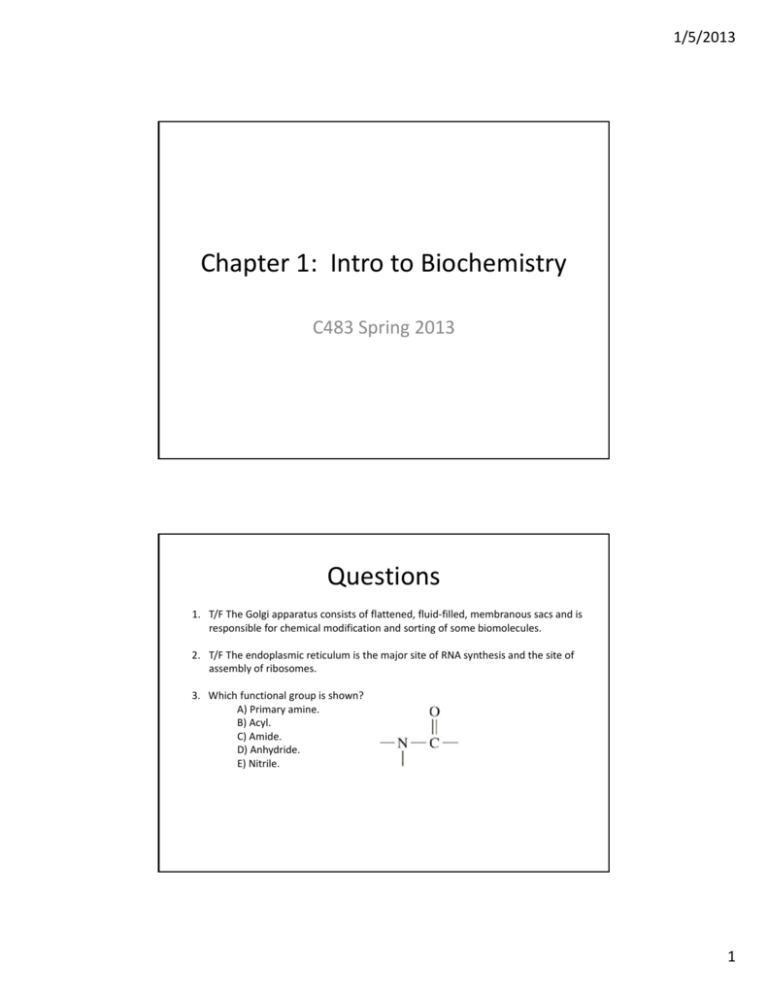
1/5/2013 Chapter 1: Intro to Biochemistry C483 Spring 2013 Questions 1. T/F The Golgi apparatus consists of flattened, fluid‐filled, membranous sacs and is responsible for chemical modification and sorting of some biomolecules. 2. T/F The endoplasmic reticulum is the major site of RNA synthesis and the site of assembly of ribosomes. 3. Which functional group is shown? A) Primary amine. B) Acyl. C) Amide. D) Anhydride. E) Nitrile. 1 1/5/2013 4. Which is NOT a proper way to form a hydrogen bond? (The symbol "R" represents a general organic group. The hydrogen bonding is represented by dashed lines.) 5. The aggregation of nonpolar molecules or groups in water is thermodynamically due to the A) increased entropy of the nonpolar molecules when they associate. B) decreased enthalpy of the system. C) increased entropy of the water molecules. D) very strong van der Waals forces among the nonpolar molecules or groups. 6. Cells keep the osmotic pressure from being too great by A) existing in hypertonic solutions. B) making macromolecules from smaller molecules. C) existing in a hypotonic solution. D) existing in an isotonic solution. E) Both B and D. Biological Chemistry • Cartoon picture of a virus • Nucleic acid wrapped in protein shell • Structural biology • Biochemistry • Chemical biology We will study a coronavirus in discussion section 2 1/5/2013 On the atomic level Major Topics 3 1/5/2013 Organic Chemistry Review: Section 1.2 4 1/5/2013 Biology Review: Sections 1.8‐1.9 Know functions of organelles Be able to describe cytosol 5 1/5/2013 Chapter 2: WATER • Properties of water based on H‐bonding – Density – Specific heat – Heat of vaporization Water Solubility • Solvation of particles based on intermolecular interactions – Polar molecules – Ionic substances 6 1/5/2013 Solution Chemistry • Diffusion • Osmotic Pressure How does formation of glycogen affect osmotic pressure? Water and Nonpolar Compounds • Nonpolar compounds do not dissolve in water—they aggregate to minimize surface area • Hydrophobic effect • Driven by minimization of ordering of water (increases the entropy of solution) 7 1/5/2013 In Discussion Section • Section 2.5 • Electrostatic interactions – Charge‐charge – Hydrogen bonding – Van der Waals • Section 1.4, 2.6 • Energetics of reactions of water – Condensation vs. hydrolysis – Thermodynamic stability – Kinetci stability Answers to Questions 1. 2. 3. 4. 5. 6. T F C II C E 8
